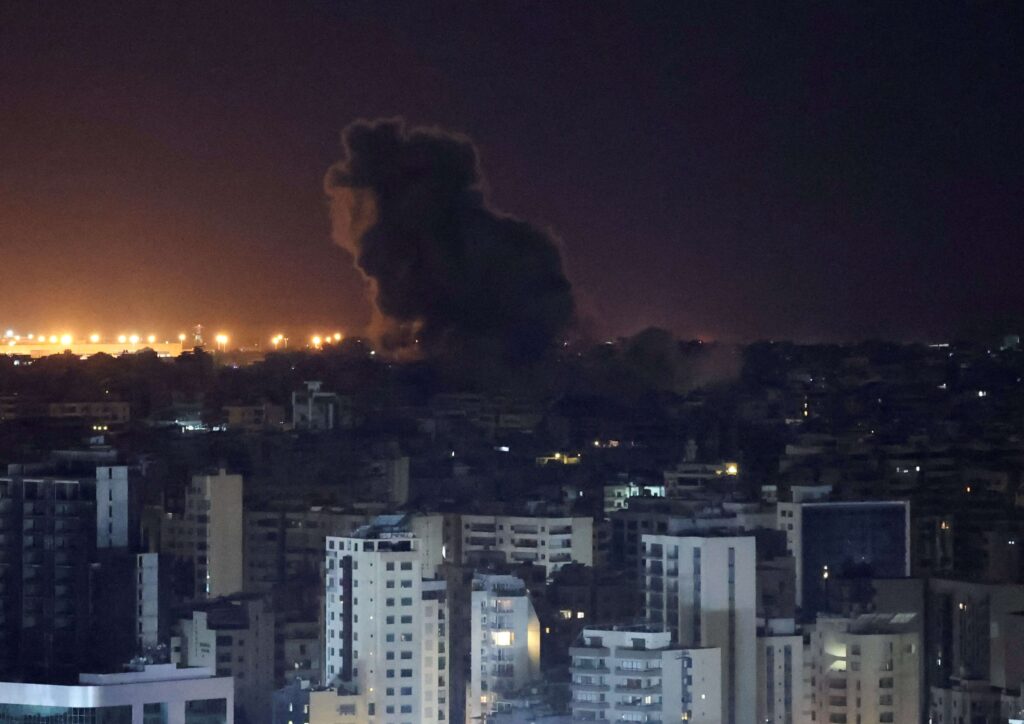Iran attacks Israel, 100s missiles fired
4 min read
It is the second attack by Iran this year, after it fired hundreds of missiles and drones at Israel in April.
Iran has launched hundreds of missiles towards Israel, with at least some striking Israeli territory. It is the second attack by Iran this year, after it fired hundreds of missiles and drones at Israel in April.
Israeli military officials said the attacks appeared to be over and there was no more threat from Iran “for now” but it is still unclear how much damage was caused.
The Israeli Prime Minister, Benjamin Netanyahu, has warned of “consequences” after the attack.
According to BBC News, Iran launched around 180 missiles towards Israel, the Israeli military said. That would make it a slightly larger attack than April’s barrage, which saw about 110 ballistic missiles and 30 cruise missiles fired towards Israel.
Post missiles were shot down by Israeli aerial defence systems, an Israeli security official said, while a BBC correspondent in Jerusalem said some military bases may have been hit, and that restaurants and schools were hit.
Iran’s Islamic Revolutionary Guard Corps (IRGC) maintained that 90% of projectiles had hit their targets, saying hypersonic missiles had been used for the first time. IRGC sources said three Israeli military bases had been targeted.
The Palestinian civil defence authority in the occupied West Bank city of Jericho said a man there died during the Iranian missile barrage.
According to the AFP news agency, which spoke to city governor Hussein Hamayel, the victim was killed by falling rocket debris.
Why did Iran attack Israel?
The IRGC said the attacks were in response to Israel’s killing of one of its top commanders and leaders of Iran-backed militias in the region.
It mentioned the killings of Hezbollah chief Hassan Nasrallah and IRGC commander Abbas Nilforoshan in the Lebanese capital Beirut on 27 September.
It also referenced the killing of Hamas political leader Ismail Haniyeh in Tehran in July. While Israel has not admitted to being behind Haniyeh’s death, it is widely believed to be responsible.
A senior Iranian official told Reuters news agency the country’s Supreme Leader, Ayatollah Ali Khamenei, had personally given the order for Tuesday’s missile attack.
Iran does not recognise Israel’s right to exist and seeks its eradication. It has spent years backing paramilitary organisations opposed to Israel.
Israel believes that Iran poses an existential threat and has spent years running covert operations against Tehran.
Israel has a sophisticated system of air defences, the best-known of which is the Iron Dome. It is designed to intercept short-range rockets of the sort fired by Hamas and Hezbollah.
While it was used to defend against some elements of Iran’s last attack in April, other elements of the country’s “layered” defence systems probably did the bulk of the work on Tuesday.
David’s Sling – a joint US-Israeli manufactured system – is used to intercept medium to long-range rockets, as well as ballistic and cruise missiles. And when it comes to long-range ballistic missiles, which fly outside the Earth’s atmosphere, Israel has the Arrow 2 and Arrow 3 interceptors.
How have Israel’s allies reacted?
US President Joe Biden reaffirmed US support for Israel after the missile attack, describing it as “defeated and ineffective”.
He had ordered his forces in the region to “aid Israel’s defence” and shoot down Iranian missiles.
A Pentagon spokesperson said US Navy destroyers had fired about a dozen interceptors against Iranian missiles headed to Israel.
US Defence Secretary Lloyd Austin also confirmed “multiple” interceptions by the US, condemning “this outrageous act of aggression by Iran”.
The BBC has also verified footage showing missile interceptions over the Jordanian capital of Amman. The country also shot down a number of missiles during Iran’s last attack in April.
The BBC understands UK fighter jets were involved in supporting Israel on Tuesday, as they were in April.
Defence Secretary John Healey said British forces had “played their part in attempts to prevent further escalation” on Tuesday evening, without giving more details.
UK Prime Minister Sir Keir Starmer said the UK stood with Israel and recognised her “right to self-defence”.
France and Japan added their voices to a chorus of condemnation of Iran’s attacks and also called on all parties to avoid further escalation.
Netanyahu said Iran had made a “big mistake” and would “pay for it”.
“We have plans, and we will operate at the place and time we decide,” said Israel Defense Forces spokesperson Daniel Haggari.
Iran’s IRGC said Tehran’s response would be “more crushing and ruinous” if Israel retaliated.
Meanwhile, the Israeli military carried out new air strikes in Beirut against Hezbollah targets overnight after warning residents to move out of the city’s southern suburbs where the group has a presence.




